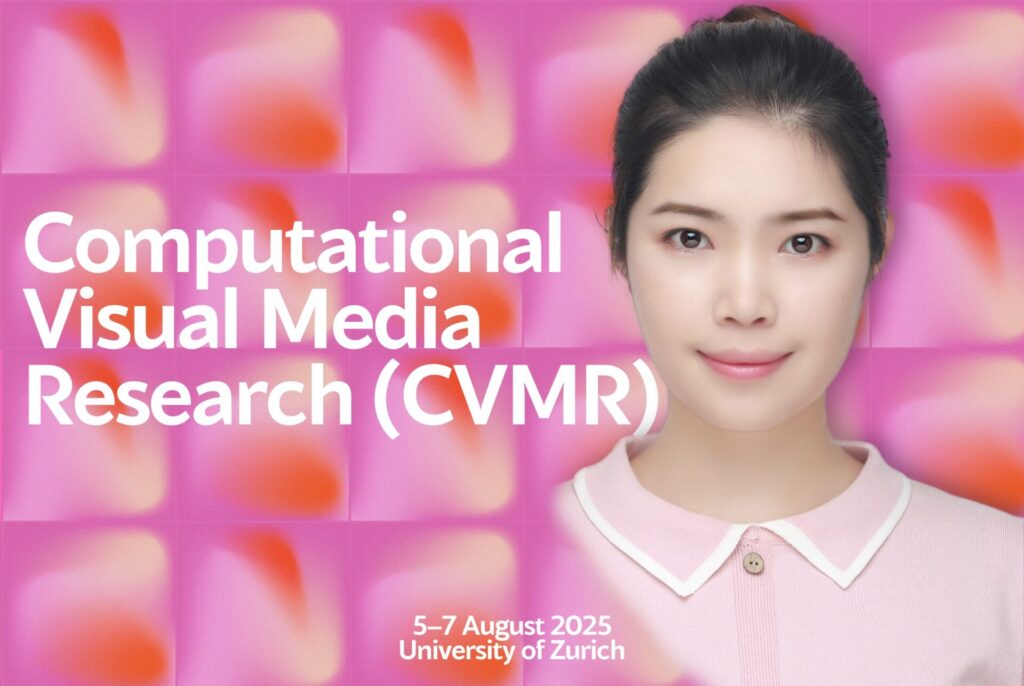
Yuru Li präsentiert Projekt zu KI-Parodien auf TikTok beim CVMR25 Symposion
6. August 2025
DCID-Mitglied Yuru Li stellt beim Computational Visual Media Research (CVMR25) Symposium vom 5.–7. August 2025 an der Universität Zürich gemeinsam mit Xin Zhou (Universität Jena) ein Projekt zu KI-generierten politischen Parodien auf TikTok vor.
Das Projekt analysiert mithilfe eines neuartigen multimodalen Analyseverfahrens visuelle und narrative Strategien sowie über 216.000 Nutzerkommentare, um Dynamiken der Delegitimierung besser zu verstehen. Das Projekt verbindet große Video-Datensätze mit fortschrittlichen Analysemodellen (u.a. ViLA, InternVL2.5) und leistet einen theoretischen Beitrag zur Weiterentwicklung kritischer Medienanalyse.
Abstract:
Al-Generated Political Parodies on TikTok: A Novel Cross-Modal Analysis of Video Content and User Comments
Xin Zhou, Yuru Li
University of Jena, University of Bremen
This project investigates how Al-generated political videos on TikTok deploy visual and narrative strategies to influence audience perception, with a particular focus on the dynamics of delegitimization. Using Ross and Rivers‘ (2017) framework as an initial analytical lens, we explore four strategies-authorization, moral evaluation, rationalization, and mythopoesis-through a multimodal computational approach. Our pipeline combines large-scale video feature extraction, unsupervised clustering, semantic analysis using ViLA and InternVL2.5 models, and sentiment analysis of over 216,000 user comments. The manually curated dataset includes 1,671 GenAl 6 political videos featuring global leaders, with clustering analysis revealing seven dominant content categories such as manipulated speeches, parody role-plays, and dystopian future scenarios.
Preliminary findings show a differentiated use of delegitimization strategies across political figures, alongside distinct audience sentiment patterns. Rationalization-driven humor correlates with more positive audience reactions, while mythopoesis narratives evoke stronger negative emotions. Authorization challenges tend to polarize responses, intensifying ideological divides.
By August, I expect to present a more extensive analysis based on an expanded dataset, enabling greater generalizability across political contexts. Additionally, I anticipate offering a critical rethinking of the theoretical framework itself. Initial results suggest that while the delegitimization taxonomy provides a useful starting point, it may insufficiently capture the hybrid, affect-driven dynamics of GenAl political media. Therefore, I plan to critically evaluate and potentially replace the current framework with one better suited to computational visual media analysis-possibly integrating concepts from affect theory, visual rhetoric, or post-digital media studies.
This research thus contributes not only new empirical insights into the visual strategies of Al-mediated political communication, but also advances methodological and theoretical innovation. By bridging computational tools with critical interdisciplinary perspectives, this project aligns with CVMR’s mission to rethink how visual media can be studied at scale and critically interpreted in evolving digital ecosystems.

